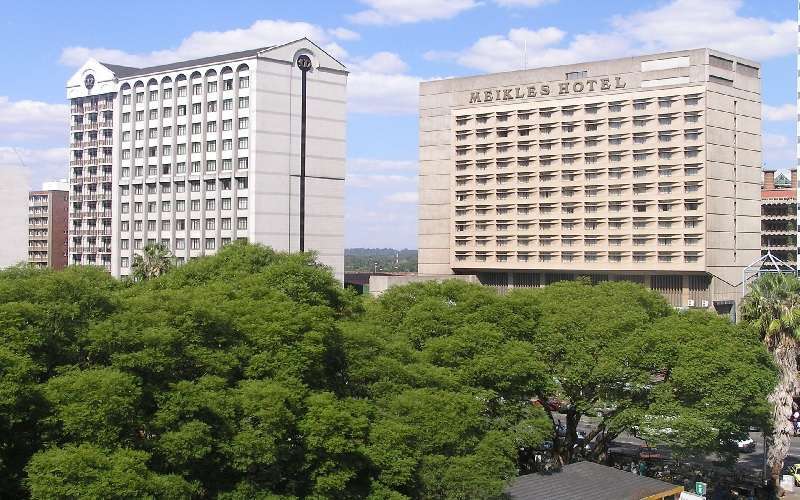By Veritas
Late on Friday the 3rd July the Minister of Health and Child Care gazetted an SI which allows restaurants, National Parks facilities and safari operators to resume restricted operations. The SI is the Public Health (COVID-19 Prevention, Containment and Treatment) (National Lockdown) (Amendment) Order, 2020 (No. 13) (SI 160 of 2020). It is available on the Veritas website [link], and so is a consolidated version of the Lock-down Order incorporating the latest amendments [link].
Scope of the Relaxation
The new SI covers:
· Restaurants, including restaurants attached to hotels
· Hunting, viewing and photographic safaris
· The activities of professional hunters who are licensed under the Parks and Wild Life Act, and
· Facilities and amenities operated by the Parks and Wild Life Management Authority and by other people on the Authority’s behalf [Note that these facilities and amenities are not just those in National Parks: they may be in botanical gardens, recreational parks and safari areas].
Under the new SI:
· Restaurants can serve meals to sit-in customers “during licensed hours” ‒ presumably, the hours they are permitted to be open by their liquor licences or the licences issued to them by the local authority in whose area they are situated.
· Safari operators and professional hunters can resume their operations.
· Facilities and amenities operated by or on behalf of the Parks and Wild Life Authority can reopen.
Restrictions on Resumption of Operations
Operations that can be resumed under the new SI are subject to restrictions designed to prevent the spread of Covid-19 infections:
Restrictions applicable specifically to restaurants:
· Restaurants are not allowed to serve alcohol [This does not apply to facilities operated by the Parks and Wild Life Management Authority, or to safari operators. Inebriated safari-goers, it seems, are less likely to spread the virus than inebriated diners.]
· Restaurants must reduce the number of their tables and chairs so that they operate at half capacity.
· Counters, tables and chairs must be disinfected before the restaurant opens and after it closes [Although the SI does not say so, it is implied that disinfection must be done daily].
· Customers in restaurants must observe the social distancing rule ‒ i.e. must stay at least one metre apart ‒ and must wear face masks except when eating or drinking.
· Hotels must keep a room free to detain guests who show symptoms of Covid-19, pending their removal to a hospital or isolation centre [Apparently this applies only to hotels which run restaurants].
Restrictions applicable specifically to safaris and to facilities operated by or on behalf of the PWL Management Authority:
· Safari operators and professional hunters may not cater for foreigners except those who were in Zimbabwe before the national lock-down was imposed, i.e. before the 30th March.
· Similarly, facilities and amenities operated by or on behalf of the Parks and Wild Life Management Authority may not be opened to foreigners except those who were in the country before the 30th March.
· Whenever three or more people are gathered together, they must wear face masks and observe the social distancing rule.
· Premises, vehicles, counters, tables and chairs must be disinfected before the facility or operation opens and after it closes [Again, it is implied that disinfection must be done daily].
Restrictions applicable to everyone covered by the new SI:
Staff of restaurants, safari operators and parks facilities must all:
· get Covid-free certificates every 14 days
· wear face masks and gloves while working, and
· wash their hands at least once every three hours while at work.
Restricted Application of the Amendments
It should be noted that the new amendments do not apply to all tourist facilities:
· Private game reserves and game parks, for example, cannot open because they are not run by or on behalf of the Parks and Wild Life Management Authority.
· Public bars cannot open, nor can shebeens ‒ but shebeens are illegal so they should never open anyway.
· Nor can hotels, except those operated by or on behalf of the Parks and Wild Life Management Authority. Whoever drafted the latest amendments probably assumed that hotels were allowed to open under the Level 2 Phased Relaxation set out in Part IIIB of SI 83 of 2020 which allows “businesses in the formal commercial and industrial sector” to reopen. In fact hotels are excluded from the definition of that phrase because, being tourist facilities, they fall under paragraph (b) of the definition of “public place” in section 2 of SI 83.
Contradictions and Anomalies
· Section 4(1)(a) of the Lock-down Order (SI 83 of 2020) does not allow people to leave their homes to go to restaurants, safari areas and other facilities and amenities that are now open under the new amendments.
· Intercity transport is still prohibited by section 4(1)(f) of the Lock-down Order, so people cannot travel outside their cities or towns to go to the facilities and amenities that have been opened.
The Lock-down Order has been amended 13 times now and is becoming difficult to follow. Perhaps the time has come for it to be revised completely so as to remove all internal contradictions.
Final Comment
The new lock-down relaxations were announced at the end of last Tuesday’s Cabinet meeting as if they had already been enacted, and were reported in the press as if they were in force. They were not, of course, until the amendments were gazetted last Friday. This is yet another example of Ministers announcing changes to the law as if their announcements can change the law without need for anything further. It is high time the Attorney-General disabused the Cabinet of the notion that Ministerial decrees or announcements can make or change the law. The law must be observed, even by Ministers.






